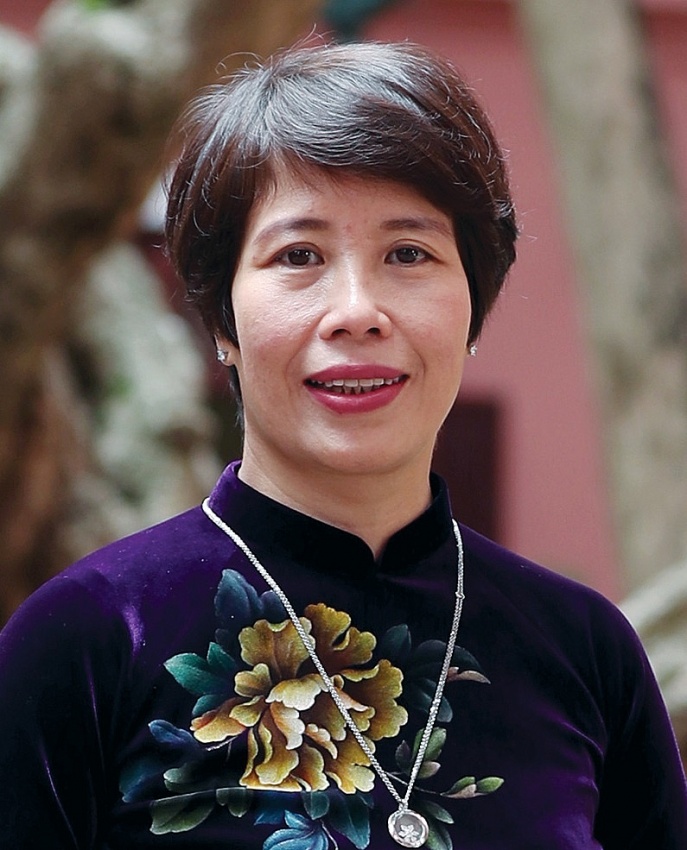Initiatives kickstarted to bolster investment attraction
Vietnam’s performance in the mobilisation of foreign direct investment (FDI) in the first nine months of 2021 reflects the government’s consistent efforts to create favourable conditions for foreign investors. How did local management authorities maintain a consistent FDI attraction policy during the pandemic?
 |
| Deputy Minister of Planning and Investment Nguyen Thi Bich Ngoc |
As of the end of September, there were 34,141 valid foreign-invested projects with a total investment value of $403.19 billion. The total disbursement value was estimated at $245.14 billion, around 61 per cent of the total registered investment.
While the pandemic has been wreaking in various cities and provinces over the past months, Vietnam did not lose its shine to foreign investors as there have been 20.6 and 25.6 per cent increases in the total newly and additionally registered capital, respectively. The country has also reported a trade surplus.
These confirm the efforts of the government, localities, and business communities to support each other to overcome the pandemic. Local authorities of all levels have proposed timely and effective solutions to prevent the impacts on production activities, especially in industrial and economic zones (IZs and EZs). Meanwhile, foreign manufacturers have strictly followed pandemic rules and guidelines to ensure safety and maintain production and business.
Several initiatives have been deployed in IZs and EZs, high-tech parks, and industrial clusters like flexible working hours, the stay-at-work and other production models, as well as testing workers. These have allowed them to continue operation and meet orders in time.
During this time, businesses have given a strong showing of solidarity, supporting the government and the people in our fight against the health crisis. They donated to the country’s COVID-19 vaccine fund, provided medical equipment and supplies for cities and provinces, and built and equipped hospitals.
What short- and long-term policies has the Ministry of Planning and Investment (MPI) proposed to the government to ease pressure on IZs and EZs?
As the general advisor of the government on IZs and EZs, the MPI has reported to the government on issues and challenges facing these zones, and proposed numerous orientations as well as urgent and long-term solutions to support them. Many of these proposals have already been turned into action in Resolution No.105/NQ-CP dated September 9 on supporting enterprises, cooperatives and business households in the context of COVID-19 pandemic in Vietnam. Plans have been built on all levels for the reopening of factories and businesses in line with the pandemic situation.
Besides these measures, we will build a unified regulatory framework to ensure safe production at IZs and EZs without disrupting supply and production chains.
The most urgent tasks at the moment are the implementation of Resolution 105 to minimise damage and negative impacts on businesses and workers in IZs and EZs.
Additionally, expectations are high for the two special working groups established by the prime minister to address the pandemic-related difficulties of investment projects, businesses, and people.
We also expect that the new decree replacing Decree No. 82/2018/ND-CP dated May 22, 2018 on the management of IZs and EZs will be completed and issued soon to provide clear directions for operation and investment in these zones.
In the long term, the development of IZs, EZs, high-tech parks, and industrial clusters is essential to restructure the economy and innovate the country’s growth model. Getting them up to speed is key to the industrialisation and modernisation of the country and to attaining sustainable development. Thereby, the relevant legal framework should be perfected to ensure efficient state management and lure in more investment.
Vietnam is looking to mobilise FDI in a way to spur the development of the private sector and improve the competitiveness of local enterprises. What are the advantages of Vietnam now to implement this target?
The development orientations selected by the Party and the government highlight both foreign and local enterprises. We welcome foreign-invested projects to help develop local businesses so that they can become more competitive and join deeper into global value chains to build an independent and self-reliant Vietnamese economy based on high-quality, high-tech, and sustainable projects.
Vietnam offers many advantages like good position, socio-political stability, consistent economic growth, affordable labour costs, a population with a golden age structure, as well as an open and potential market.
Vietnam has well implemented the dual goals of fighting the pandemic and maintaining economic growth, which has been highly appreciated by the international community. We remain a promising destination for foreign groups to diversify and relocate supply chains.
With the proper and timely policies of the Party, government, ministries, agencies, and localities, I do believe that the country will be able to enhance FDI mobilisation significantly, and it will continue playing an important role in Vietnam’s socioeconomic development.
What the stars mean:
★ Poor ★ ★ Promising ★★★ Good ★★★★ Very good ★★★★★ Exceptional
 Tag:
Tag:
Related Contents
Latest News
More News
- NAB Innovation Centre underscores Vietnam’s appeal for tech investment (January 30, 2026 | 11:16)
- Vietnam moves towards market-based fuel management with E10 rollout (January 30, 2026 | 11:10)
- Vietnam startup funding enters a period of capital reset (January 30, 2026 | 11:06)
- Vietnam strengthens public debt management with World Bank and IMF (January 30, 2026 | 11:00)
- PM inspects APEC 2027 project progress in An Giang province (January 29, 2026 | 09:00)
- Vietnam among the world’s top 15 trading nations (January 28, 2026 | 17:12)
- Vietnam accelerates preparations for arbitration centre linked to new financial hub (January 28, 2026 | 17:09)
- Vietnam's IPO market on recovery trajectory (January 28, 2026 | 17:04)
- Digital economy takes centre stage in Vietnam’s new growth model (January 28, 2026 | 11:43)
- EU Council president to visit Vietnam amid partnership upgrade (January 28, 2026 | 11:00)






















 Mobile Version
Mobile Version